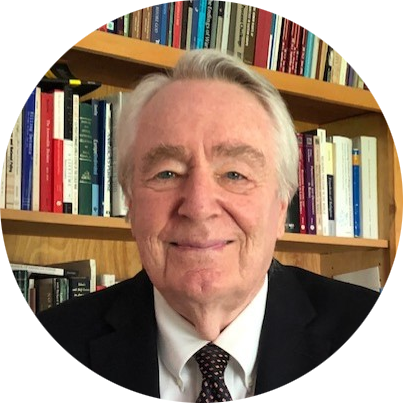
The Right of Self-Defense and the Organic Unity of Human Rights
– Part IV –
David Little
Landscape Photo of Mountains Under Gray Sky,eberhard grossgasteiger, Pexels (CC0)
This article is part of our “Self-Defense and Human Rights” series.
If you’d like to check out other articles in this series, click here.
This is the final installment of a four-part essay in which Dr. David Little develops a unified theory of human rights based upon the personal and collective right of self-defense. His central claim is that that key words in the Preamble to the Universal Declaration of Human Rights point to the right of self-defense “against tyranny and oppression” as the moral and legal foundation of human rights, and account for the “organic unity” of the formative instruments: the Universal Declaration and the two Covenants on political, legal and economic, social, and cultural rights.
Basic and Supplemental Protection: ICESCR, Continued
Assuming that minimum standards regarding what satisfies basic rights to food, housing, medical care, and education can be devised successfully, and that some specific rights mentioned in the ICESCR give expression to those rights, two things still remain unclear under the ICESCR: First, whether only part of Articles 11, 12, and 13 — the “minimum essential standard” of rights to food, housing, medical care, and education — is nonderogable, leaving as derogable the remainder of the requirements of those articles; and second, to what degree other rights listed in the ICESCR are to be identified as nonderogable or derogable. The resolution of each of these uncertainties is imperative to the understanding of human rights under the ICESCR.
As regards Article 9, “the right of everyone to social security,” for instance, the right to a “minimum essential standard” of social security might be considered indispensable for human survival and thus be classified as a basic security right. In effect, that would mean social security above the minimum is supplemental and below the minimum it is not. On the other hand, the right as a whole might be regarded as supplemental to the basic rights, and thus thought of as derogable. The same is true of Article 6, “the right to work.” Bearing in mind that the right, as General Comment 18 says, “should not be understood as an absolute and unconditional right to obtain employment,” but rather as freedom from forced labor of the sort practiced by the Nazi authorities, one “minimum essential standard” of the right is clearly nonderogable, namely, the unconditional right not to be subjected to slavery or servitude.1This right in Article 6 of the ICESRP is also found in Article 8 of the ICCPR. However, whether the other intentions of Article 6 are below or above the standard of basic rights remains an open question. The same ambiguity attends Article 7, “the right of everyone to the enjoyment of just and favorable conditions of work.” A “minimum essential standard” might reasonably be devised, including an unconditional prohibition against discriminatory treatment regarding remuneration and promotion (paragraphs (a) and (c)), and a requirement of certain levels of both “safe and healthy working conditions” (paragraph (b) and provisions for “rest, leisure, and reasonable limitations of working hours…” (paragraph (d)). Requirements beyond that might be regarded as supplemental, though whether they are is not clear from the authoritative commentary.
Finally, the wording of Article 13, “the right to education,” suggests a similar distinction. The article states simply that “primary education shall be compulsory and available free to all” (paragraph 2(a), whereas secondary education and higher education “shall be made generally available and accessible to all by every appropriate means, and in particular by the progressive introduction of free education” (paragraphs 2(b) and (c)). It appears that requirements are less discretionary for implementing primary education than for secondary and higher education, but that inference is, admittedly, somewhat conjectural.
Governments are, however, ultimately responsible for how well non-governmental arrangements meet the minimum standards, and for making up the difference where those arrangements fall short.
As the General Comments of the CESCR make clear, the implication is not that governments must themselves directly supply all the requisite goods and services. Private sector arrangements are typically indispensable, up to a point, in enabling citizens to provide for themselves. Governments are, however, ultimately responsible for how well non-governmental arrangements meet the minimum standards, and for making up the difference where those arrangements fall short.
There is much more to be said about interpreting and implementing the rights enumerated in the ICCPR and the ICESCR. All we have had the space to do in the Sections II, III and IV is to elucidate rather cursorily the common rationale that appears to underlie what has been called, “the International Bill of Rights” — the UDHR, the ICCPR, and the ICESCR. That rationale incorporates the idea of basic and supplemental protection grounded in the right of self-defense against the abiding threat of arbitrary force and arbitrary deprivation/neglect.
Conclusion
The argument developed in this essay is, for better or worse, a theoretical one. The limited, if hardly undaunting, objective is to offer a theory that calls into question strongly-held convictions in political and academic circles around the world that there exists no compelling, unitary, universally resonant moral and legal justification for human rights language nor for its “organic unity.” The theory, intimated by two overlooked passages in the Preamble to the UDHR, dwells on the right of self-defense against arbitrary force, understood both individually and collectively, and as both a moral and legal concept. It suggests that the salience of the right of self-defense as grounds for a unified understanding of human rights language makes perfect sense against the background of the atrocious abuses of force perpetrated by the German fascists and their allies before and during World War II, and that, indeed, the language can only be understood in that context. It also summons arresting, if still preliminary, evidence in auxiliary support. The fact that there appears to be widespread cross-cultural acceptance of at least the rudiments of a moral and legal right of self-defense, both individual and collective, does not, of course, validate the basic moral argument of the essay. That depends on a separate normative account supplied in the section on moral foundations. But it does give reason for believing in the worldwide comprehensibility and possible appeal of human rights language.
It must be admitted that as important as theorizing is, it is by no means everything. In a thorough discussion, we would take up the question, regularly asserted by the critics, that, on balance, human rights language does more harm than good. In addition, we would attend to the character and effectiveness of legal remedies for violations of the ICCPR and the ICESCR, something mandated in the covenants themselves, and a subject of great controversy.
All that can be pled “in defense” is the importance of taking first things first. If we have succeeded in providing a compelling theory of human rights, that is perhaps a necessary, though hardly sufficient, achievement. ♦

David Little is at present a research fellow at the Berkley Center for Religion, Peace, and World Affairs at Georgetown University, having served before that as Professor of the Practice in Religion and International Affairs at Harvard Divinity School, and as Senior Fellow in Religion, Ethics, and Human Rights at the United States Institute of Peace. In 2015, Cambridge University Press published Essays on Religion and Human Rights: Ground To Stand On, and a book of responses to his work by colleagues and former students: Religion and Public Policy: Human Rights, Conflict, and Ethics, ed. by Sumner B. Twiss, Marian Gh. Simion, and Rodney L. Petersen.
Recommended Citation
Little, David. “The Right of Self-Defense and the Organic Unity of Human Rights – Part IV.” Canopy Forum, June 11, 2020. https://canopyforum.org/2020/06/11/the-right-of-self-defense-and-the-organic-unity-of-human-rights-part-4/

